 A new volume has been published as part of Gondolat Publishers’s series on the history of science, focusing on the philosophical contexts of eighteenth- and nineteenth-century natural history, palaeontology, and palaeoanthropology. The bilingual (English and German) volume entitled Time in the “third kingdom of nature” was edited by our colleague, Dezső Gurka, and in three parts it examines the interplays of knowledge production and the transfers of knowledge between Germany, Hungary, and Transylvania and their literary representations, taking the examples of Mór Jókai’s and Ágost Greguss’s oeuvres and their references to palaeontology and palaeoanthropology. The studies in the volume pay special attention to ideas in natural philosophy, natural history, and the philosophy of history on the relations between man and nature. Two of our colleagues contributed to the volume: Dezső Gurka discusses Henrik Steffens’s attempt at a Schellingian interpretation of the Earth’s comprehensive history, while Piroska Balogh analyses the paleoanthropological references in Ágost Greguss’s oeuvre.
A new volume has been published as part of Gondolat Publishers’s series on the history of science, focusing on the philosophical contexts of eighteenth- and nineteenth-century natural history, palaeontology, and palaeoanthropology. The bilingual (English and German) volume entitled Time in the “third kingdom of nature” was edited by our colleague, Dezső Gurka, and in three parts it examines the interplays of knowledge production and the transfers of knowledge between Germany, Hungary, and Transylvania and their literary representations, taking the examples of Mór Jókai’s and Ágost Greguss’s oeuvres and their references to palaeontology and palaeoanthropology. The studies in the volume pay special attention to ideas in natural philosophy, natural history, and the philosophy of history on the relations between man and nature. Two of our colleagues contributed to the volume: Dezső Gurka discusses Henrik Steffens’s attempt at a Schellingian interpretation of the Earth’s comprehensive history, while Piroska Balogh analyses the paleoanthropological references in Ágost Greguss’s oeuvre.
 Our colleague, György Kurucz has published a new source edition, Technológiai utazás a modern kor hajnalán. Válogatás Gerics Pál és Lehrmann József georgikoni professzorok nyugat-európai jelentéseiből és naplóiból (1820–1825) (Technological Journey at the Dawn of the Modern Age – Selection from the Reports and Travel Journals of the Georgikon Professors, Pál Gerics and József Lehrmann, on Western Europe, 1820–1825). On more than 700 pages, the book navigates the reader through the two professors’ journey with the help of selected Hungarian- and German-language sources (travel instructions, the letters of Pál Gerics to László Festetics, the reports of the travellers to the Festetics estate management, including their journals). The volume has been published by the Károli Gáspár University of the Reformed Church in Hungary and L’Harmattan Publishing House.
Our colleague, György Kurucz has published a new source edition, Technológiai utazás a modern kor hajnalán. Válogatás Gerics Pál és Lehrmann József georgikoni professzorok nyugat-európai jelentéseiből és naplóiból (1820–1825) (Technological Journey at the Dawn of the Modern Age – Selection from the Reports and Travel Journals of the Georgikon Professors, Pál Gerics and József Lehrmann, on Western Europe, 1820–1825). On more than 700 pages, the book navigates the reader through the two professors’ journey with the help of selected Hungarian- and German-language sources (travel instructions, the letters of Pál Gerics to László Festetics, the reports of the travellers to the Festetics estate management, including their journals). The volume has been published by the Károli Gáspár University of the Reformed Church in Hungary and L’Harmattan Publishing House.
 Our colleague, Piroska Balogh was chosen to be a member of the editorial board of ESPES, published electronically by the Society for Aesthetics in Slovakia. The peer-reviewed open-access journal, published biannually, was established in 2012 and aims to create a professional forum for the historians and scholars of aesthetics in the East-Central European region.
Our colleague, Piroska Balogh was chosen to be a member of the editorial board of ESPES, published electronically by the Society for Aesthetics in Slovakia. The peer-reviewed open-access journal, published biannually, was established in 2012 and aims to create a professional forum for the historians and scholars of aesthetics in the East-Central European region.
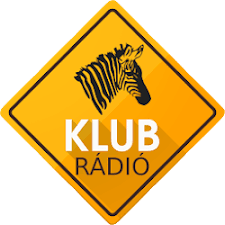 On 1 May 2020, an interview with György Kurucz was broadcasted on Klubrádió on the occasion of the publication of his new monograph on the European peregrination of Pál Gerics and József Lehrmann.
On 1 May 2020, an interview with György Kurucz was broadcasted on Klubrádió on the occasion of the publication of his new monograph on the European peregrination of Pál Gerics and József Lehrmann.
 Our colleague, György Kurucz has published a new monograph, “Kedves Hazámfiai, mozdulni kell…” Georgikoni peregrinatio oeconomica a 19. század elején ['Dear Fellow Countrymen, we should make a move...' The technological journeys of Hungary's first college of farming in the early 19th century], discussing the Western European technological journey of the two teachers of the Georgikon, Pál Gerics and József Lehrmann between 1820 and 1825 based on reports, itineraries, letters, and other manuscript sources. The book was published by Corvina Publishing House and the Ráday Collections of the Danubian District of the Hungarian Reformed Church, illustrated with images and maps visualising the locations of the journeys.
Our colleague, György Kurucz has published a new monograph, “Kedves Hazámfiai, mozdulni kell…” Georgikoni peregrinatio oeconomica a 19. század elején ['Dear Fellow Countrymen, we should make a move...' The technological journeys of Hungary's first college of farming in the early 19th century], discussing the Western European technological journey of the two teachers of the Georgikon, Pál Gerics and József Lehrmann between 1820 and 1825 based on reports, itineraries, letters, and other manuscript sources. The book was published by Corvina Publishing House and the Ráday Collections of the Danubian District of the Hungarian Reformed Church, illustrated with images and maps visualising the locations of the journeys.
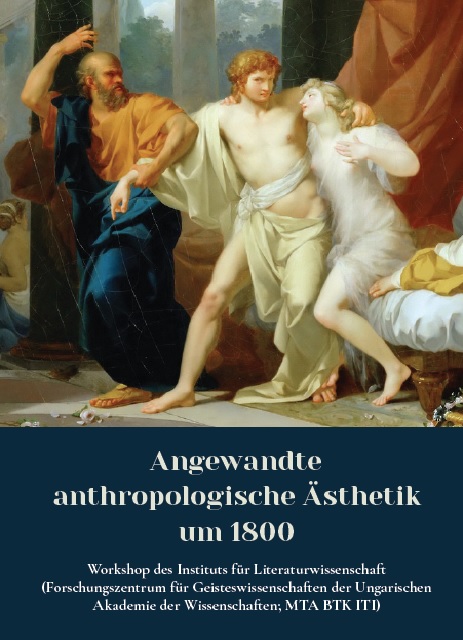 The Institute for Literary Studies of the Hungarian Academy of Sciences organised a workshop on 23 November 2018 on applied anthropological aesthetics around 1800. The event was held at the Library and Information Centre of the Hungarian Academy of Sciences in two parts. The conference presentations focused on the contemporary applications of the Central European theories of aesthetics at the turn of the eighteenth and nineteenth centuries, followed by book launches in the afternoon.
The Institute for Literary Studies of the Hungarian Academy of Sciences organised a workshop on 23 November 2018 on applied anthropological aesthetics around 1800. The event was held at the Library and Information Centre of the Hungarian Academy of Sciences in two parts. The conference presentations focused on the contemporary applications of the Central European theories of aesthetics at the turn of the eighteenth and nineteenth centuries, followed by book launches in the afternoon.
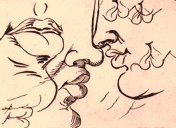 The new volume edited by our project team member, Dezső Gurka has been published. The thematic blocs of the edited collection focus on the approaches to man and the related transformations of philosophy and anthropology in the eighteenth century. All members of our project contributed to the volume.
The new volume edited by our project team member, Dezső Gurka has been published. The thematic blocs of the edited collection focus on the approaches to man and the related transformations of philosophy and anthropology in the eighteenth century. All members of our project contributed to the volume.
 The new volume of Kaleidoscope Journal for the History of Culture, Science and Medicine has been published, including a thematic bloc on the history science with the contributions of our research team.
The new volume of Kaleidoscope Journal for the History of Culture, Science and Medicine has been published, including a thematic bloc on the history science with the contributions of our research team.
 A new edited volume has been published on György Aranka and the renewing shapes of science. The new publication is edited by Annamária Biró and Emese Egyed, and it collects the papers presented at the conference, held 18-20th May 2017, The Shapes of Hungarian and Transylvanian Science at the Turn of the Eighteenth and Nineteenth Centuries. Our colleague, Tibor Bodnár-Király contributed to the volume.
A new edited volume has been published on György Aranka and the renewing shapes of science. The new publication is edited by Annamária Biró and Emese Egyed, and it collects the papers presented at the conference, held 18-20th May 2017, The Shapes of Hungarian and Transylvanian Science at the Turn of the Eighteenth and Nineteenth Centuries. Our colleague, Tibor Bodnár-Király contributed to the volume.
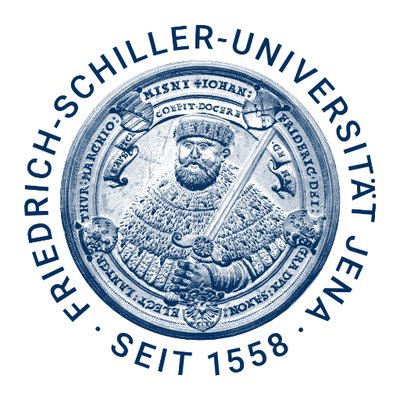 The University of Jena organised an international workshop on the authors of East-Central European calendars (Die Erfindung des Schreibkalenders im Jahre 1540 und ihre Folgen: Die deutschsprachigen Schreibkalender und ihre Autoren in den Ländern in Mittel-, Ost- und Ostmittel-Europa von 1540 bis 1850) on 18 May 2018. Our colleague, Ildikó Sz. Kristóf gave a lecture on America and its natives in seventeenth-century Hungarian calendars.
The University of Jena organised an international workshop on the authors of East-Central European calendars (Die Erfindung des Schreibkalenders im Jahre 1540 und ihre Folgen: Die deutschsprachigen Schreibkalender und ihre Autoren in den Ländern in Mittel-, Ost- und Ostmittel-Europa von 1540 bis 1850) on 18 May 2018. Our colleague, Ildikó Sz. Kristóf gave a lecture on America and its natives in seventeenth-century Hungarian calendars.
 In March 2018 a new edited volume was published on the Podmaniczky family. The studies in the volume explore the activities of the different members of the family, aimed at the social and cultural modernization of Hungary in the eighteenth and nineteenth centuries. The volume, edited by Dezső Gurka, collects the papers presented at the conference, The Podmaniczky family in 18th- and 19th-century Hungarian culture held on 5 June 2015. Several members of our team contributed to the volume.
In March 2018 a new edited volume was published on the Podmaniczky family. The studies in the volume explore the activities of the different members of the family, aimed at the social and cultural modernization of Hungary in the eighteenth and nineteenth centuries. The volume, edited by Dezső Gurka, collects the papers presented at the conference, The Podmaniczky family in 18th- and 19th-century Hungarian culture held on 5 June 2015. Several members of our team contributed to the volume.
 As of today, the online version of Századok, No. 5 (2017) is available online. All the members of the research team contributed to the thematic bloc The Circulation of Knowledge in Hungary, 1770–1830. The objectives of the project are summarised in Lilla Krász’s foreword, Production and Transfers of Knowledge in Hungary, 1770–1830.
As of today, the online version of Századok, No. 5 (2017) is available online. All the members of the research team contributed to the thematic bloc The Circulation of Knowledge in Hungary, 1770–1830. The objectives of the project are summarised in Lilla Krász’s foreword, Production and Transfers of Knowledge in Hungary, 1770–1830.
 A new edited volume is now out commemorating the 300th anniversary of the birth of Maria Theresa. The articles are authored by the participants of the representative conference held on 28th September 2017 as part of the Maria Theresa Memorial Year, among them our project leader, Lilla Krász, discussing Medical Knowledge and Power: Organising the System of (Public) Healthcare during the Reign of Maria Theresa.
A new edited volume is now out commemorating the 300th anniversary of the birth of Maria Theresa. The articles are authored by the participants of the representative conference held on 28th September 2017 as part of the Maria Theresa Memorial Year, among them our project leader, Lilla Krász, discussing Medical Knowledge and Power: Organising the System of (Public) Healthcare during the Reign of Maria Theresa.
 The Ferenc Verseghy Library and the Institute for Literary Studies of the Hungarian Academy of Sciences organised a conference on 3–4 April 2017 to celebrate the 260th anniversary of Ferenc Verseghy’s birth. Our colleague, Piroska Balogh gave a presentation about Verseghy’s Lexicon terminorum technicorum and its entries on aesthetics and poetics. The conference proceedings were published in an edited volume (editors: Etelka Doncsecz and Réka Lengyel).
The Ferenc Verseghy Library and the Institute for Literary Studies of the Hungarian Academy of Sciences organised a conference on 3–4 April 2017 to celebrate the 260th anniversary of Ferenc Verseghy’s birth. Our colleague, Piroska Balogh gave a presentation about Verseghy’s Lexicon terminorum technicorum and its entries on aesthetics and poetics. The conference proceedings were published in an edited volume (editors: Etelka Doncsecz and Réka Lengyel).
 The launch of the 65th volume of Sic Itur ad Astra took place on 19 December 2016 in the Szekfű Gyula Library of the Institute of History, Eötvös Loránd University. As part of the event, a roundtable discussion was organised on the Hungarian reception of postcolonialism. Our colleague, Ildikó Sz. Kristóf participated in the discussion.
The launch of the 65th volume of Sic Itur ad Astra took place on 19 December 2016 in the Szekfű Gyula Library of the Institute of History, Eötvös Loránd University. As part of the event, a roundtable discussion was organised on the Hungarian reception of postcolonialism. Our colleague, Ildikó Sz. Kristóf participated in the discussion.
 The Centre des Hautes Études de la Renaissance and the Department of Medieval and Renaissance Hungarian Literature, Faculty of Humanities, Eötvös Loránd University, and the Doctoral School of Literary Studies, Pázmány Péter Catholic University organised a conference between 30 September and 1 October 2016 on the literary and cultural approaches to man in a historical perspective. Our colleague, Tibor Bodnár-Király discussed the relationship of man and nature in the natural philosophy of György Aranka.
The Centre des Hautes Études de la Renaissance and the Department of Medieval and Renaissance Hungarian Literature, Faculty of Humanities, Eötvös Loránd University, and the Doctoral School of Literary Studies, Pázmány Péter Catholic University organised a conference between 30 September and 1 October 2016 on the literary and cultural approaches to man in a historical perspective. Our colleague, Tibor Bodnár-Király discussed the relationship of man and nature in the natural philosophy of György Aranka.
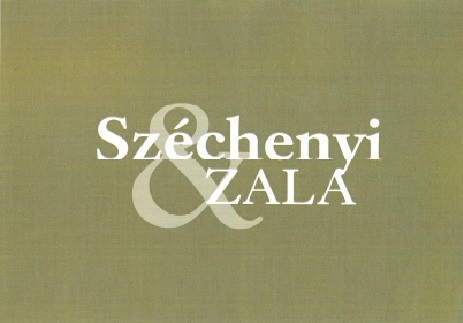 As part of the Széchenyi Memorial Year, the Zala County Archives and the Ferenc Deák City Library organised a conference on 14 September 2016 in Zalaegerszeg, where György Kurucz gave a presentation on István Széchenyi and László Festetics. The conference papers were published in an edited volume.
As part of the Széchenyi Memorial Year, the Zala County Archives and the Ferenc Deák City Library organised a conference on 14 September 2016 in Zalaegerszeg, where György Kurucz gave a presentation on István Széchenyi and László Festetics. The conference papers were published in an edited volume.
 The National Office of Vocational and Training and Adult Learning organised a conference on 4 March 2016 on the role of professions in the development of settlements. Our project team colleague, György Kurucz participated in the event and gave a presentation on the reception and transfer of knowledge in agricultural training at the turn of the eighteenth and ninenteenth centuries. The volume on the proceedings of the conference is now out.
The National Office of Vocational and Training and Adult Learning organised a conference on 4 March 2016 on the role of professions in the development of settlements. Our project team colleague, György Kurucz participated in the event and gave a presentation on the reception and transfer of knowledge in agricultural training at the turn of the eighteenth and ninenteenth centuries. The volume on the proceedings of the conference is now out.



